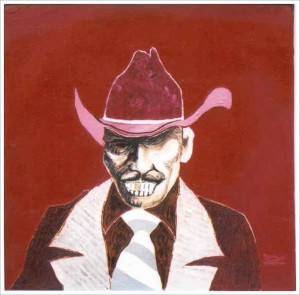 Last week, I published an op-ed on the recent Summit of the Americas recently held in Cartagena, Colombia. By now, you’ve probably heard about it because of the media frenzy around Secret Service scandal (don’t get me started on that one). The op-ed argues, “President Obama left the summit in Latin America with Washington more isolated than ever before. The reason: The stubborn positions the United States takes on the drug war and on Cuba.” I think writing op-eds is something academics need to do more of. Geographers, especially, could apply their insights to show, among many other things, that what happens “over there” truly matters “over here.” The Progressive Media Project, which is where I publish, is great, because it feeds op-eds to the McClatchy-Tribune News Service network of newspapers. Besides being the third-largest newspaper company in the U.S., it is also mainly geared toward local, small-town newspapers, so it helps in potentially going beyond preaching to the converted.
Last week, I published an op-ed on the recent Summit of the Americas recently held in Cartagena, Colombia. By now, you’ve probably heard about it because of the media frenzy around Secret Service scandal (don’t get me started on that one). The op-ed argues, “President Obama left the summit in Latin America with Washington more isolated than ever before. The reason: The stubborn positions the United States takes on the drug war and on Cuba.” I think writing op-eds is something academics need to do more of. Geographers, especially, could apply their insights to show, among many other things, that what happens “over there” truly matters “over here.” The Progressive Media Project, which is where I publish, is great, because it feeds op-eds to the McClatchy-Tribune News Service network of newspapers. Besides being the third-largest newspaper company in the U.S., it is also mainly geared toward local, small-town newspapers, so it helps in potentially going beyond preaching to the converted.
At about 400-600 words, op-eds always have their downsides. You can really only make one or two points and you inevitably end up simplifying complex issues. On the Cartagena Summit, there’s a lot I didn’t mention: e.g. Argentina’s disputed claim on the Malvinas/Falklands, the U.S.-Colombia free trade agreement confirmation, and the ongoing mass violation of human rights in Colombia that the U.S. knowingly sweeps under the rug. Historian Greg Grandin also pointed out Brazil’s opposition to U.S. monetary policy. Latin American opposition to the Drug War and U.S. Cuba policy was about all I had room for.
One of the most successful in-class exercises I tried last semester when teaching Introduction to Development Studies, an undergraduate course that attracts lots of politically active students, was having the students learn the op-ed format. After explaining it to them, I had them write the first few lines or paragraphs of their op-ed, which could be on anything but I suggested themes from the course. After they worked on it for a bit, I had a few read their work out loud and we gave each reader feedback on what they wrote. Students liked the exercise because they learned a concrete practically applicable skill. Another definite plus is that it helps build critical thinking toward the media that saturates our lives . It’s also an important writing-teaching tool since it parallels the age old five-paragraph essay, while forcing them to write in clear, short sentences.
